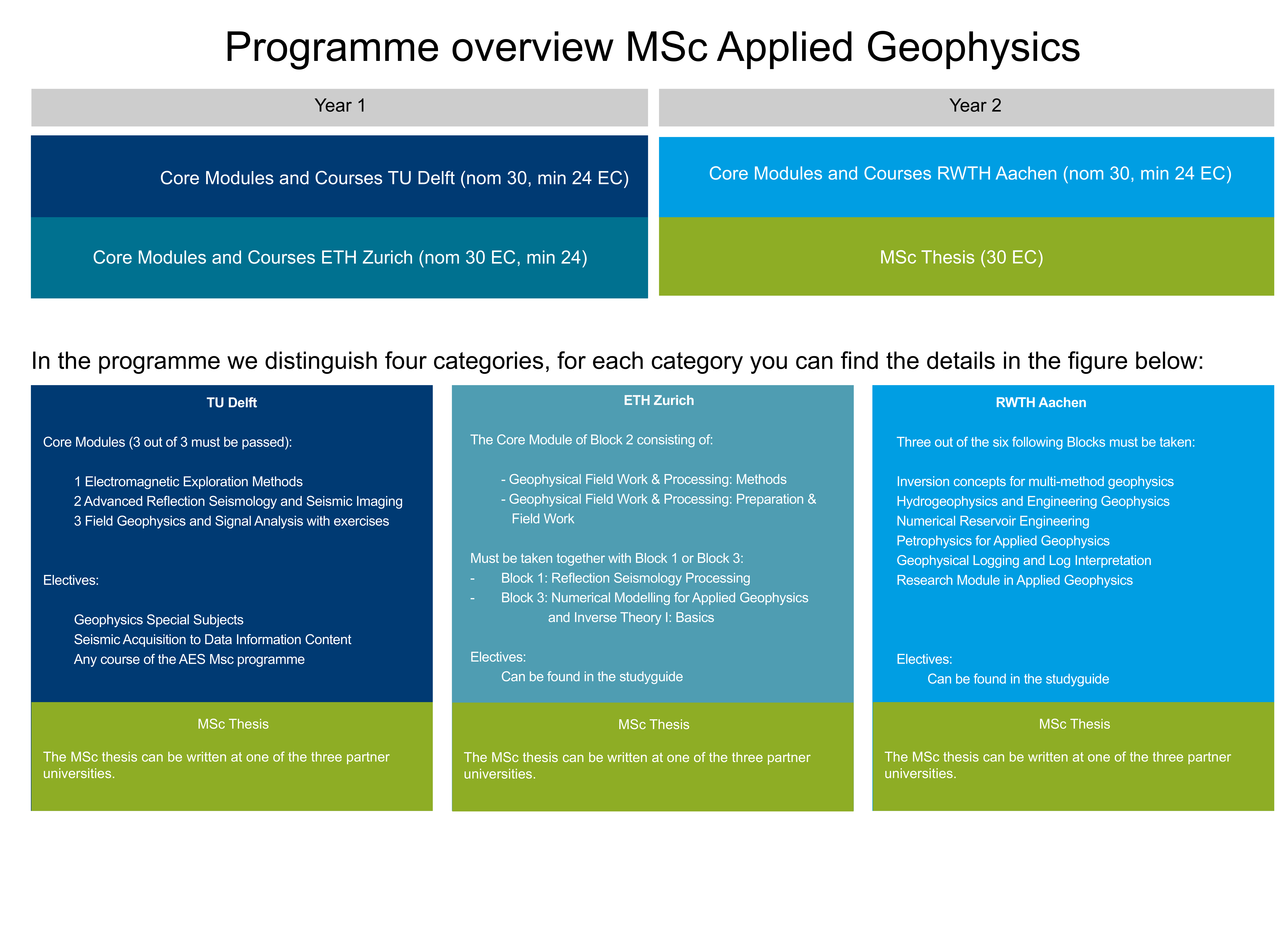Programme
Introduction to the programme
Geophysical methods are critical to the exploration and management of various forms of energy including geothermal and hydrocarbon energy, as well for sustainable and environment-friendly use of the subsurface for storage, living space, transportation and other utilities, and for preparedness of engineering structures on or in the ground against natural or manmade disasters. These geophysical methods are taught in this multifaceted Master’s programme which delves into both theoretical and practical aspects. Teaching methods include hands-on simulation and data analyses exercises, field work both in surface exploration methods and in borehole logging. The Joint Master’s Programme (TU Delft, ETH Zurich and RWTH Aachen) is run in close collaboration with the industry. Companies support the programme by providing funding, grants for scholarships, opportunities for research projects, and experts for special lectures or for co-supervision of Master’s thesis projects.
The Joint Master’s Programme offers students a combination of study and research, leading to an outstanding educational experience in Applied Geophysics, relevant for careers in the areas of Earth resource exploration and management and environmental and engineering investigations. Graduating students are immediately attractive for positions in industry as well as for doctoral research in Earth Sciences.
The Delft semester will focus on convergence courses, seismic and electromagnetic theory and exploration geophysics.
ETH Zürich will offer courses on numerical modelling and inversion, geophysics field programme and engineering geophysics.
The semester at RWTH Aachen will focus on geothermics, petrophysics and borehole logging.
In the last semester, students will write their Master’s Thesis at one of the three universities or other approved university or industry laboratories. Upon completion of the programme, graduates will obtain one diploma.
